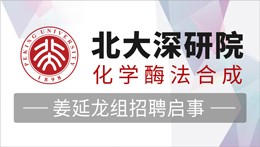Information Systems Frontiers ( IF 6.9 ) Pub Date : 2024-08-08 , DOI: 10.1007/s10796-024-10525-7
Jungwon Kuem , Yixin Zhang

|
With the widespread use of computers and the internet in the workplace, computer use for personal reasons during work time, or cyberloafing, has become quite common. Without a clear understanding of the consequences of cyberloafing, practitioners cannot properly design an IT policy aimed at managing employees' cyberloafing. This study aims to develop and test a model of the relationship between cyberloafing and task performance. Specifically, we attempt to demonstrate how performance-based monetary incentives and time change the role of cyberloafing in task performance. Drawing on the theory of goal setting and the capacity theory of attention, we developed research hypotheses on how cyberloafing interacts with incentives and time to influence task performance. To test the hypotheses, we conducted five 2 × 2 experiments repeatedly on 189 subjects. The results of hierarchical linear modeling showed that although cyberloafing generally worsened task performance, this relationship varied with performance-based monetary incentives. Incentives significantly diminished the negative effect of cyberloafing on task performance. However, as our theory predicted, the moderating effect of incentives decreased over time. More specifically, we found that the two-way interaction between cyberloafing and incentives was in effect during earlier phases but gradually disappeared over time. This study contributes to IS research and practice by providing valuable insights into the role of cyberloafing in task performance and how this relationship changes over time with the option of performance-based monetary incentives.
中文翻译:

基于绩效的金钱激励如何影响网络闲逛对任务绩效的影响?
随着计算机和互联网在工作场所的广泛使用,工作时间出于个人原因使用计算机或网络闲逛已变得相当普遍。如果没有清楚地了解网络闲散的后果,从业者就无法正确设计旨在管理员工网络闲散的 IT 政策。本研究旨在开发和测试网络闲散与任务绩效之间关系的模型。具体来说,我们试图证明基于绩效的金钱激励和时间如何改变网络闲散在任务绩效中的作用。借鉴目标设定理论和注意力能力理论,我们提出了关于网络闲散如何与激励和时间相互作用以影响任务绩效的研究假设。为了验证这些假设,我们对 189 名受试者重复进行了 5 次 2 × 2 实验。分层线性模型的结果表明,虽然网络闲散通常会恶化任务绩效,但这种关系随着基于绩效的金钱激励而变化。激励措施显着减少了网络闲散对任务绩效的负面影响。然而,正如我们的理论预测的那样,激励的调节作用随着时间的推移而减弱。更具体地说,我们发现网络游手好闲和激励措施之间的双向互动在早期阶段是有效的,但随着时间的推移逐渐消失。这项研究通过提供有价值的见解来了解网络闲散在任务绩效中的作用以及这种关系如何随着基于绩效的金钱激励的选择而随着时间的推移而变化,从而为信息系统的研究和实践做出了贡献。

































 京公网安备 11010802027423号
京公网安备 11010802027423号